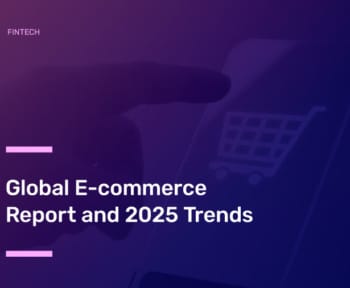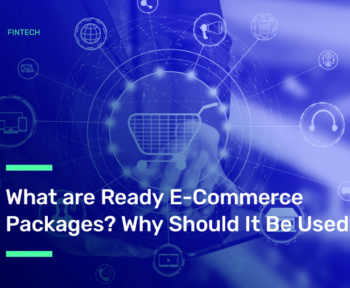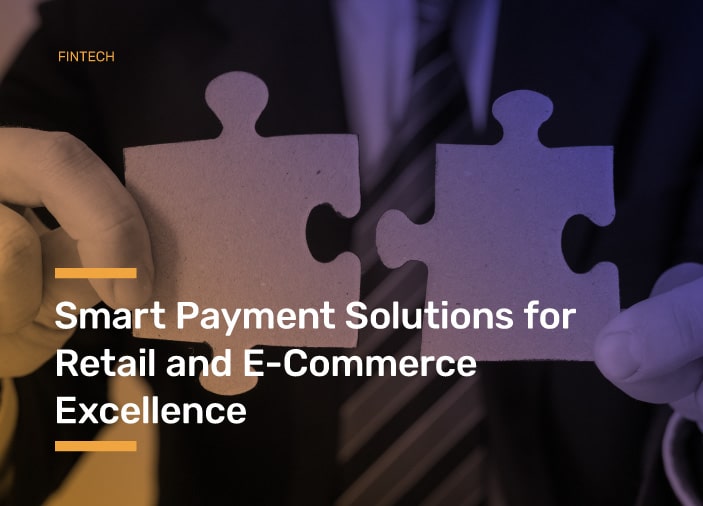
Table of Contents
- Examples of Smart Payment Solutions
- Why Smart Payment Solutions Are Important For E-Commerce Retailers?
- Smart Payment Processes For the Global Trade
- Benefits of Smart Payment Solutions
- Conclusion
What the future holds for retail and e-commerce companies needs to be clarified, but one thing is certain: Retailers can no longer afford not to use smart payment solutions in the following years. According to research, 30% of potential revenue uplifts from optimizing online payments for now. While this study shows that using smart payment tools is crucial for retailers, we’ll dive into the reasons in this article.
Examples of Smart Payment Solutions
Today, optimizing payments is a source of growth for e-commerce retailers. Most researchers find that those merchants focused on improving their payment performance by capturing more revenue and growing faster than their competitors.
Although the e-commerce landscape presents challenges for online retailers, there are riches and rewards on offer for those who embrace the latest technologies, adapt to changing consumer preferences, and take the time to optimize their operations.
Moreover, retailers have the opportunity to work with different smart payment players which can be summed up as payment service providers (PSPs), payment orchestration platforms (PoPs), and alternative payment methods (APMs).
- Payment Service Providers:
A payment processor is a financial institution that facilitates transactions between buyers and sellers also known as a payment facilitator.
Two key processors are involved in processing smart payment transactions: The issuer and the acquirer. While both processors play crucial roles in payment processing, they operate on different transaction flows. The issuer focuses on cardholders, and the acquirer works with merchants.
Payments processors act as an intermediary in authorizing and transferring funds, and are typically responsible for:
- Verifying the identity of the buyer and seller
- Protecting both parties’ sensitive information, including credit card data
- Charging fees for their services (“Payment processing fees”). But businesses have a choice of providers, which helps keep these fees competitive.
- Payment Orchestration Platforms
Payment orchestration platforms (POPs) are the platforms that integrate different payment service providers, acquirers, payment gateways, and banks on a single layer. Payment Orchestration platforms innovate smart payment solutions by simplifying the integration of various payment service providers. A payment orchestration platform is software that executes complete payment optimization from validation to routing. It brings together merchant and payment providers, and alternative payment methods to route transactions involving those parties. In addition, a payment orchestration platform also has smart payment services that lead to income increases, cost savings, and reporting processes.
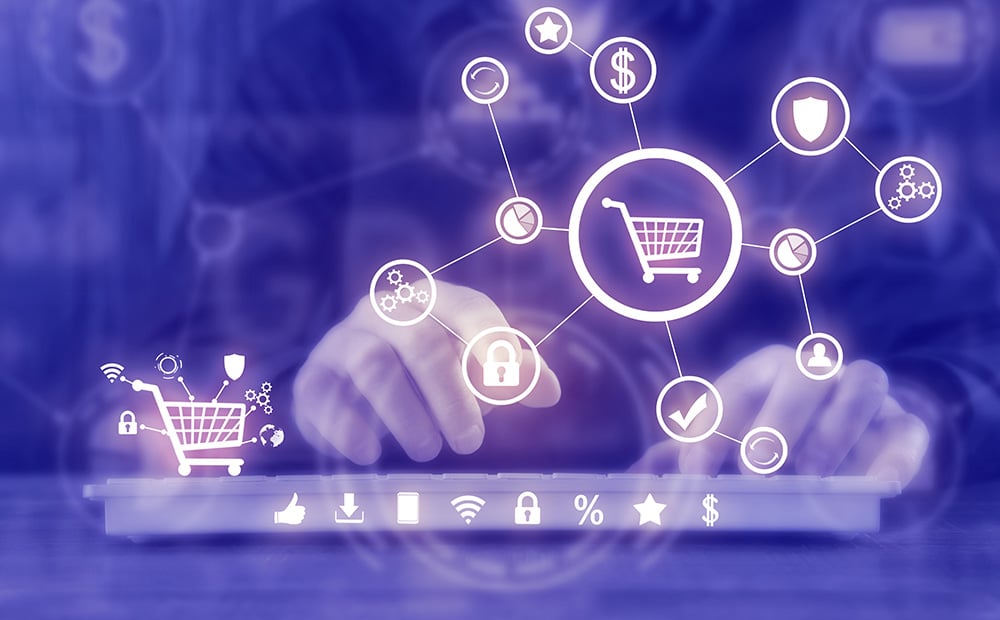
- Alternative Payment Methods
Research shows that 85% of e-commerce users abandon the shopping cart when they don’t see their preferred payment method at checkout.
Alternative payment methods (APM), excepting the traditional payment methods, are a smart payment approach that provides high-quality and cost-efficient care. Among these methods, the most commonly used ones include digital wallets, shopping loans, and BNPL solutions.
Offering payment options with alternative payment methods enhances the customer experience but also assists businesses in increasing conversion rates. Especially, considering the common usage of alternative payment methods, integrating these methods into payment strategies is critical. In fact, according to research conducted in the United Kingdom, online retailers experience an annual loss of 2.13 billion euros due to the lack of options. For more information on the advantages of using APMs, you can read our blog post here.
- Buy Now Pay Later (BNPL)
BNPL is also one of the leading AMPs that allows customers to purchase products and services without having to commit to the full payment amount up front. In this method, customers can immediately finance purchases and pay them back in fixed installments over time. For example, imagine that a customer making a $100 purchase could pay for the item in four interest-free installments of $25.
The leading BNPL services are used by a wide variety of businesses, especially e-commerce retailers, to increase conversion, increase average order value, and reach new customers. These payment methods such as -Affirm, Afterpay, Klarna, and Zip- offer customers the ability to immediately finance purchases and pay them back in fixed installments over time.
- Mobile Wallets and Contactless Payments
We experience that contactless payment has been widely used in our daily lives. According to a study, digital wallets currently rank among the most popular online payment methods in North America and are used by 37% of consumers there. So, the mobile payment spending per user increasing year after year. Apple Pay -one of the leading mobile payment players with Google Pay or Samsung Pay– has also been rising as the most-used mobile payment method by US consumers.
One of the main reasons behind the rise in digital wallets -which counted as part of APMs- is convenience. Paying with a single tap or swipe instead of counting bills and coins is much faster and easier. This simplified process has been especially valuable in a world where time is a precious resource.
- Pay by Link or QR Code
Payment by link is a practical tool that allows secure payment through a designated link. In the concept of payment by link, there is a URL link that initiates the online payment process. Users are directed to a previously loaded checkout form when clicking the linked URL. After clicking the link, users enter their payment information on the directed page and complete the payment.
Payment by QR code is related to pay by link method. By scanning the QR code, users are directed to a checkout form with a link. After clicking on the link, the user enters the payment information on the page and completes the payment.
Research shows that nearly 6.6 billion people worldwide use smartphones. Especially, in European countries, 86.66% of smartphone users have scanned a QR code at least once. Thanks to camera-equipped smartphones, QR code payments are a trending payment method for consumers, offering a seamless shopping experience.
You can get further information on QR code payment and how to integrate this smart payment method into your business here.
- Biometric Payments
Biometric payments are smart contactless solutions that use biological characteristics to verify a person’s identity. Biometric payments rely on unique physical or behavioral features such as facial recognition, fingerprints, iris scans, or voice recognition. Because of that, these methods provide a more secure way to conduct transactions.
This technology is increasingly being used in various sectors including banking and retail to provide a faster and more protected payment experience. Research also shows that the global biometric card market is expected to grow at a compound annual growth rate of nearly 118% between 2024 and 2029.
- Voice-Activated Payments
Powered by machine learning, AI, and natural language processing (NLP) developments, voice assistants also help us to complete tasks more easily in our everyday lives. Voice interaction is also heading towards the fintech sector. For example, one of the biggest financial institutions, Royal Bank of Canada has already introduced voice payments via Siri.
At this point, you may wonder about the working principle of voice-activated payments. Voice payment technology comes from the advancements made in AI) and machine learning (ML). Artificial intelligence refers to the capabilities of machines to do tasks that would require human intelligence.
Voice payment is a process of speaking to an artificial intelligence-powered device. The device will recognize the verbal request and respond with a confirmation.
Moreover, voice pay utilizes NLP, a branch of AI that allows computers to learn, understand, respond, and produce content in human languages. For instance, voice assistants such as Amazon’s Alexa or Apple’s Siri utilize AI-enhanced voice recognition technology. The machine then receives, interprets, understands, and performs the spoken commands. As you can see, NLP is a crucial component in making voice payments possible.
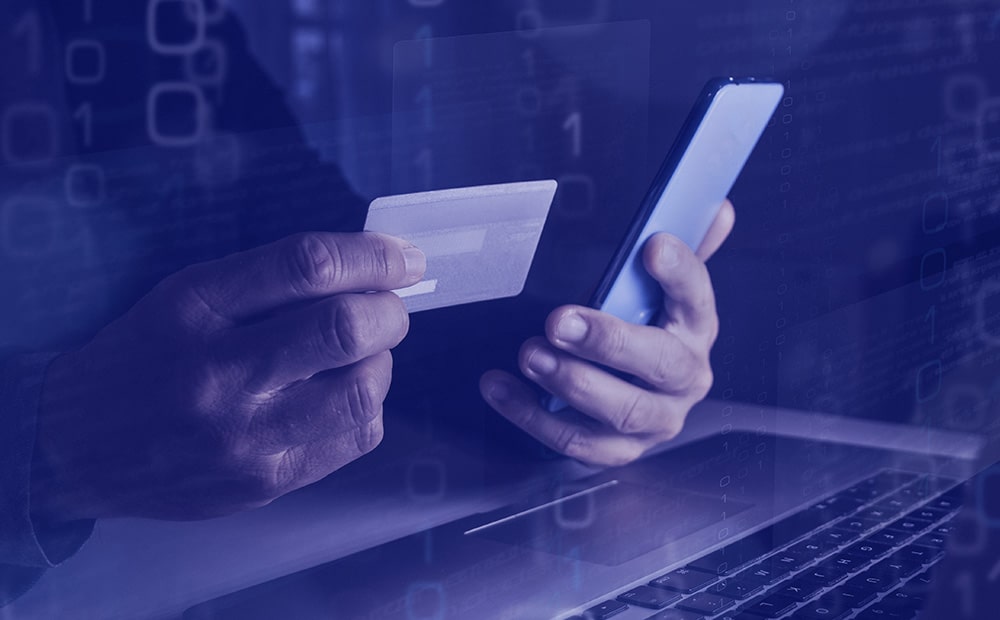
Why Smart Payment Solutions Are Important For E-Commerce Retailers?
In an increasingly crowded and ever-changing e-commerce landscape, you need to give yourself an advantage if you want to stand out and provide exceptional value to your customers.
Taking into account the following headlines can help to optimize your operations, drive sales, increase loyalty, and minimize the risks associated with online transactions.
Increasing Authorization Rate to Gain More Revenue
When discussing smart payment solutions, we should also consider the authorization rate. This KPI tracks the number of payments initiated by customers that are successfully authorized by their issuer. This rate is crucial because no authorization means no conversion and no sale which equals a loss of revenue.
Improving the authorization rate by just a few percent can have a huge impact on your business’ revenue. At this point, we should examine why your authorization rate is lower than the average and how to increase it in the short term.
Since the payment service providers are also software systems, they might suffer from downtime issues. During this time, your customers who click on the “pay” button cannot complete the payment transaction which leads to loss of revenue and customer satisfaction.
At this point, smart payment features might save your life. For example, in the event of any downtime, our Autopilot feature deactivates the relevant PSP. Then, it routes the payment requests to another PSP that is working. When the problem is solved, it reactivates the relevant PSP. Thus, our merchants no longer experience such loss of turnover and customer dissatisfaction.
Including Routing Mechanisms to the Payment Strategies
Smart routing mechanisms can be great examples of smart payment solutions. Today, online retailers tend to work with different payment service providers to take advantage of competitive payment processing fees.
For instance, thanks to our Smart and Dynamic Payment Routing feature, our merchants can reduce payment fees by about 50%. They can route the payment request to the most advantageous PSP.
Smart Payment Processes For the Global Trade
Smart payment processes in global trade are transforming how companies expand their businesses to foreign markets. At this point, when you consider entering the new geographies, you should also be aware of the customers’ payment behaviors. The shortest way of it would be working with the commonly used PSPs or APMs. However, running integration processes with each payment method requires time and operation.
To avoid this process, other smart payment solution POPs would help your business. Craftgate’s Payment Gateway feature helps our merchants reach well-known PSPs or APMs from all around the world through a single panel. After dealing with any of them, you can be ready to process payment online with a click.
In every country where our merchants expand their operations, we connect them with local payment players such as Stripe, Payoneer, PayPal, AliPay, Klarna, Afterpay, Clearpay, Braintree, Paytabs, etc.
Benefits of Smart Payment Solutions
After we underlined the commonly used smart payment solutions and why online retailers should use them, we can list their top benefits shortly:
- Improved Customer Experience: Faster and more convenient payment processes enhance customer satisfaction.
- Increased Security: Advanced encryption, tokenization, and biometric authentication reduce the risk of fraud.
- Operational Efficiency: Automation of payment processes reduces manual errors and operational costs.
- Global Reach: Support for multiple currencies and payment methods allows businesses to cater to international customers.
- Data Insights: Detailed transaction data helps make informed business decisions and improve marketing strategies.
Conclusion
E-commerce companies want to focus on the core of their business, which is retail. At this point, dealing with integration processes with different PSPs or APMs, and managing them via different panels is time-consuming.
On the other hand, providing online payment insight and analysis through a single panel leads to operational advantage. In a nutshell, smart payment solutions may be crucial to unlocking excellence.
For this reason, Craftgate provides retailers flexibility, simplicity, and actionable transactions thanks to its value-added features and support processes with its expertise in payment.
This combination helps retailers achieve optimal payment success, more sales, happier customers, and greater revenue.
To share our experience and knowledge in the payment field, we publish content on the Craftgate Blog.
Contact us for detailed information about our smart payment features.




